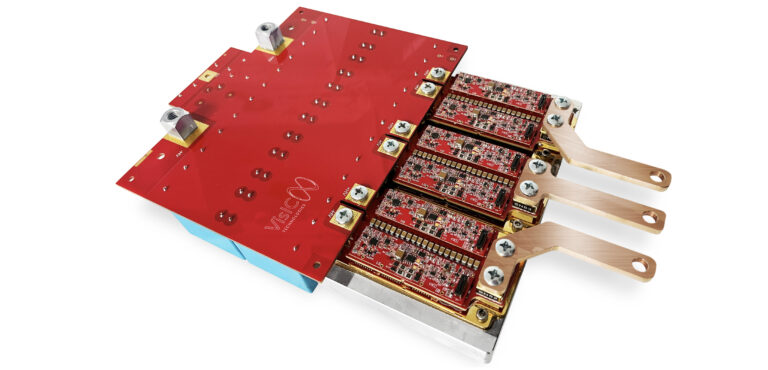A 2.2mΩ 650V half-bridge power module, consisting of four parallel 8mΩ power FETs has been successfully tested by VisIC Technologies in a three-phase configuration on a dyno test bench using a PMSM motor at a major automotive OEM’s facility.
By conducting the test, VisIC Technologies has proved that its Direct Drive D-Mode Gallium-Nitride (D³GaN) semiconductor technology is well-suited for high-power automotive applications. Furthermore, additional concerns about parallelization and oscillations caused by fast-switching transients have also been addressed.
The inverter phase current reached 350Arms (500A peak) at 400V, although test system setup limitations prevented higher currents, which the 2.2mΩ power module can handle.
Worldwide Harmonized Light Vehicles Test Procedure driving cycle testing was carried out and achieved comparable efficiency with commercial silicon carbide-based modules, despite using early non-optimized module prototypes. As a result, the company’s D³GaN can provide the highest efficiency to improve vehicle costs due to lighter and more compact power systems with a smaller battery size, without compromising the driving range. Furthermore, VisIC Technologies’ D³GaN (which is based on the GaN-on-silicon semiconductor process) is providing a performance level that is better than silicon carbide (SiC) at a more competitive silicon cost level.
“With this great accomplishment, acknowledged by a leading automotive OEM, VisIC Technologies has provided overwhelming evidence for higher-efficiency at lower-cost future EV traction inverters for the automotive world,” said Dr Tamara Baksht, CEO and co-founder of VisIC Technologies. “The automotive market demands high-power, high-voltage, high-reliability GaN, and our D3GaN die and module solutions are the answer.”


